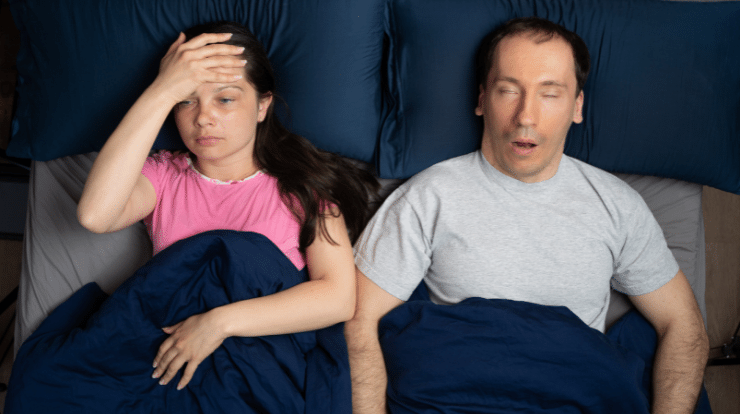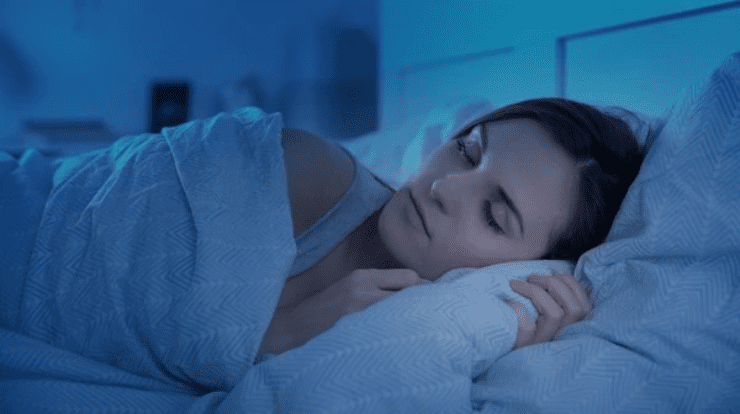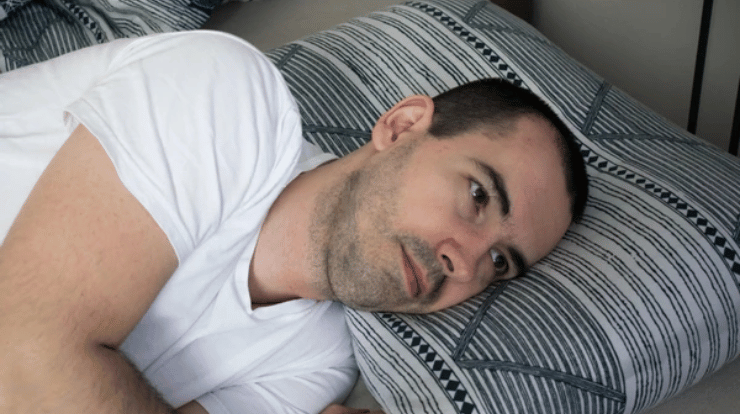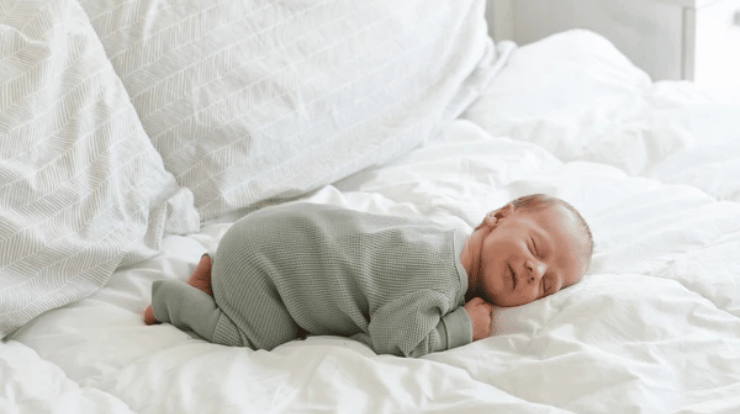
What is sleep apnea?
Sleep apnea is a condition in which a person’s breathing is interrupted during sleep. The interruption can happen many times throughout the night and can last for a few seconds or minutes. People with sleep apnea often snore loudly. Sleep apnea can cause many problems. It is important to see a doctor if you think you have sleep apnea.
What are the types of sleep apnea?
There are three types of sleep apnea: obstructive, central, and mixed.
- Obstructive sleep apnea: is the most common type, and happens when your throat muscles intermittently relax and block your airway.
- Central sleep apnea: occurs when your brain doesn’t send proper signals to the muscles that control your breathing.
- Mixed sleep apnea: is a combination of both obstructive and central sleep apnea. People with this condition have periods of blocked airflow (obstructive) followed by periods of no airflow at all (central).
What are the Symptoms of sleep apnea?
There are a number of symptoms associated with sleep apnea, including:
- Loud snoring
- Gasping or choking during sleep
- Pauses in breathing during sleep
- Waking up suddenly from sleep gasping for air
- Excessive daytime fatigue or sleepiness
- Morning headaches
If you have any of these symptoms, it’s important to see your doctor so that you can be properly diagnosed and treated. Sleep apnea can potentially be a serious condition, so it should not be ignored.
What are the Sleep apnea treatments?
Sleep apnea treatment can be very effective in helping people who suffer from this disorder get a good night’s sleep. There are a number of different treatments available, and the best one for you will depend on the severity of your condition and your own personal preferences. Some of the most common treatments for sleep apnea include:
1. Continuous positive airway pressure (CPAP):
CPAP is a machine that delivers air through a mask to keep your airway open while you sleep. It is the most common and effective treatment for sleep apnea, and it can be very helpful in reducing or eliminating your symptoms.
2. Oral appliances:
There are a number of different oral appliances that can be used to treat sleep apnea. These appliances work by keeping your tongue from blocking your airway while you sleep. Some of these appliances are available over the counter, while others must be custom-made by dentists.
3. Surgery:
In some cases, surgery may be necessary to treat sleep apnea. This option is usually only recommended for people who have severe sleep apnea that is not responding to other treatments.

What Causes Sleep Apnea?
Many people have questioned what are the causes of sleep apnea. While there are many potential causes, the most common cause is obesity. People who are obese often have excess tissue in the back of their throats, which can block their airways and cause sleep apnea. Other potential causes include:
- A family history of sleep apnea
- Narrowed airways
- Enlarged tonsils or adenoids
- Growths in the nose or throat
- Smoking
- Use of alcohol, sedatives, or tranquilizers
- Structural changes in the jaw or skull
- Neuromuscular disorders
Untreated sleep apnea can lead to a number of serious health problems, including:
- High blood pressure
- Heart disease
- Stroke
- Diabetes
- Depression
- Worsening of ADHD
How to tell if you have sleep apnea?
There are a few signs and symptoms that may indicate you have sleep apnea. If you snore loudly (especially if you snore every night), or if people tell you that you stop breathing during the night, these could be signs of sleep apnea. Other indications include waking up gasping for air, or feeling tired and groggy during the day despite getting a full night’s sleep. If you think you might have sleep apnea, see your doctor and get evaluated.
What is sleep apnea surgery?
Sleep apnea surgery is a treatment option for people with sleep apnea who cannot or do not want to use a continuous positive airway pressure (CPAP) machine. Sleep apnea surgery involves making changes to the bones and tissues in your throat and nose to improve your breathing.
There are several types of sleep apnea surgery, and the type you have will depend on the severity of your sleep apnea and the underlying cause. The most common type of sleep apnea surgery is (UPPP), which involves removing the excess tissue from the back of the throat. Other types of sleep apnea surgery include:
- Maxillomandibular advancement (MMA), which moves the upper and lower jaws forward.
- Palatal implants, which stiffen the soft palate.
- Tracheostomy, which creates an opening in the neck for you to breathe through.
Sleep apnea surgery is usually done as an outpatient procedure, which means you can go home the same day. The surgery typically takes 1-2 hours, and you will be given general anesthesia. Recovery time varies depending on the type of surgery you have but is usually around 2 weeks. There are some risks associated with sleep apnea surgery, such as bleeding, infection, and difficulty swallowing, but these are rare. If you are considering sleep apnea surgery, be sure to discuss all of the potential risks and benefits with your doctor.
Can sleep apnea kill you?
The short answer is yes, sleep apnea can kill you. This condition causes your oxygen levels to drop during sleep, and this can lead to a number of serious health problems. For example, sleep apnea has been linked to an increased risk of heart attack and stroke. Additionally, this condition increases your chances of developing high blood pressure, which can also lead to a heart attack or stroke. Sleep apnea is also a leading cause of sudden cardiac death.
All of these health problems can ultimately lead to death if sleep apnea is left untreated. However, it’s important to note that while sleep apnea can be fatal, most people who have this condition do not die from it. With proper treatment, most people with sleep apnea are able to live normal, healthy lives.
What is sleep apnea in babies?
Sleep apnea in babies is a condition where a baby’s breathing pauses during sleep. This can happen repeatedly throughout the night and can cause serious health problems. Babies with sleep apnea may snore loudly, gasp for air, or have trouble sleeping. If your baby has any of these symptoms, it’s important to talk to your doctor. Sleep apnea can be treated, and getting treatment early is important for your baby’s health.
How many people die from sleep apnea?
It’s no secret that a good night’s sleep is essential for good health. But for people with sleep apnea, a condition that causes interrupted breathing during sleep, a restful night can be hard to come by. In fact, according to the National Sleep Foundation, sleep apnea affects an estimated 18 million Americans. And of those 18 million, an estimated 80,000 die each year as a direct result of the condition. Though it may seem like a small number in comparison to other causes of death, it’s important to remember that sleep apnea is a preventable condition. With proper diagnosis and treatment, people with sleep apnea can enjoy restful nights and improved overall health.
Top Best Sleep Apnea Machine
There are several types of sleep apnea machines available, and the best one for you will depend on your specific needs and preferences. Some common types of sleep apnea machines include:
1. Continuous positive airway pressure (CPAP) machines:
These are the most common type of sleep apnea machines and work by delivering a constant stream of pressurized air through a mask to help keep your airway open while you sleep.

2. Bi-level positive airway pressure (BiPAP) machines:
Similar to CPAP machines, these machines deliver pressurized air through a mask, but the pressure is adjustable to match your breathing patterns. This can be helpful for people who find it difficult to exhale against the constant pressure of a CPAP machine.

3. Automatic positive airway pressure (APAP) machines:
These machines automatically adjust the pressure delivered to your airway based on your needs, making them a good option for people who experience fluctuating pressure requirements.

4. Oral appliances:
These are small devices that are worn in the mouth and work by repositioning the lower jaw and tongue to help keep the airway open while you sleep.

It’s important to work with a healthcare provider to determine the best sleep apnea treatment for your needs. They can help you choose the right sleep apnea machine and make sure it is properly fitted and adjusted for optimal effectiveness.






